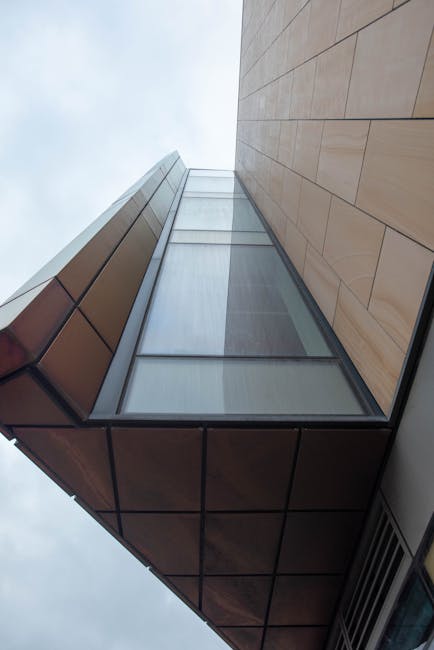Japan: A Journey That Reshaped My Worldview

Japan: A Journey That Reshaped My Worldview
Hey there! I wanted to share something really personal with you today. It's about a trip I took to Japan that completely changed the way I see the world. It wasn't just a vacation; it was a profound experience that challenged my assumptions, broadened my horizons, and left me with a lasting appreciation for a culture so different from my own.
First Impressions: Stepping into Another Dimension

Before I even landed, Japan was already different. The anticipation built as I studied maps, tried to learn a few basic Japanese phrases (which I promptly butchered), and devoured any information I could find about the culture. But nothing truly prepared me for the sensory overload that hit me as soon as I stepped off the plane at Narita International Airport. Everything felt…crisp. Clean. Orderly. The air seemed different, the sounds were softer, and the visual landscape was a fascinating blend of ancient tradition and futuristic technology.
My initial impression was one of overwhelming politeness. Everyone was incredibly courteous and helpful, even when my attempts at Japanese were hilariously inadequate. This constant display of respect, from the airport staff to the train conductors, was a stark contrast to the hustle and bustle of my everyday life. It forced me to slow down, to be more mindful of my interactions, and to appreciate the value of genuine human connection, even in brief encounters.
The Harmony of Tradition and Modernity

One of the most striking aspects of Japan is its incredible ability to seamlessly blend tradition and modernity. You can be walking through a bustling metropolis like Tokyo, surrounded by skyscrapers and neon lights, and then suddenly stumble upon a serene Shinto shrine tucked away on a quiet side street. This juxtaposition is everywhere, from the fashion trends that incorporate traditional elements to the architectural designs that honor the past while embracing the future.
For example, I spent an afternoon in Kyoto, visiting the stunning Fushimi Inari Shrine with its thousands of vibrant red torii gates winding up a mountainside. The air was filled with the scent of incense and the murmur of prayers. Then, the next day, I was riding the Shinkansen (bullet train) at speeds exceeding 300 km/h, marveling at the engineering and efficiency of this modern marvel. This constant interplay between the old and the new gave me a deeper understanding of Japanese culture – it's not about choosing one over the other, but rather finding a way to harmonize them.
The Power of Minimalism and Intentionality

Japanese culture places a strong emphasis on minimalism and intentionality, which really resonated with me. Whether it's the design of a traditional tea ceremony, the presentation of a simple meal, or the arrangement of a Zen garden, every detail is carefully considered and imbued with meaning. This intentionality extends to daily life, from the way people organize their homes to the way they approach their work.
I noticed this most profoundly in the ryokans (traditional Japanese inns) I stayed in. The rooms were often sparsely furnished, with tatami mats on the floor and sliding shoji screens. The focus was on simplicity and tranquility, creating a space that encouraged contemplation and relaxation. This was a stark contrast to my own cluttered apartment, which suddenly felt overwhelming and unnecessary. It made me realize how much stuff I accumulated without truly needing it, and how much mental space it occupied.
This experience inspired me to declutter my own life, both physically and mentally. I started by getting rid of things I no longer used or needed. Then, I began to be more intentional about my purchases, asking myself if I truly needed something before buying it. It was a slow process, but it had a profound impact on my sense of well-being. I felt lighter, more focused, and more appreciative of the things I did have.
The Beauty of Imperfection: Wabi-Sabi

One concept that I found particularly fascinating was wabi-sabi, which is the Japanese aesthetic philosophy that embraces imperfection and impermanence. It's about finding beauty in the flawed, the simple, and the natural. It's the opposite of striving for perfection, which is something I had always struggled with.
Learning about wabi-sabi helped me to let go of my need for control and to accept things as they are. I started to appreciate the beauty of chipped pottery, weathered wood, and the natural aging process. It also helped me to be kinder to myself, recognizing that I am not perfect and that my flaws are part of what makes me unique. This was a huge shift in perspective for me, and it has made me much more resilient and accepting of life's challenges.
Beyond the Tourist Trail: Experiencing Authentic Japan

While visiting popular tourist destinations is a must, I made a conscious effort to venture off the beaten path and experience a more authentic side of Japan. This involved:
- Staying in local guesthouses: Instead of large hotels, I opted for smaller, family-run guesthouses, where I had the opportunity to interact with the owners and learn about their lives.
- Eating at local restaurants: I avoided tourist traps and sought out small, unassuming restaurants where I could try traditional Japanese cuisine. This led to some amazing culinary discoveries, from ramen shops tucked away in alleyways to sushi bars where the chef prepared each piece with meticulous care.
- Exploring smaller towns and villages: I took day trips to smaller towns and villages outside of the major cities, where I could experience a slower pace of life and see a different side of Japanese culture. One memorable trip was to Takayama, a charming town nestled in the Japanese Alps, with well-preserved Edo-period streets and traditional wooden houses.
These experiences allowed me to connect with the local culture on a deeper level and to gain a more nuanced understanding of Japanese society. It also reinforced the importance of being open to new experiences and of stepping outside of my comfort zone.
The Art of Communication: Beyond Words

Communication in Japan goes far beyond words. Body language, tone of voice, and even silence play a crucial role in conveying meaning. I quickly learned that directness is often avoided in favor of subtlety and nuance. This can be challenging for someone accustomed to more direct communication styles, but it also forces you to be more attentive and observant.
I remember one instance when I was trying to ask for directions in a small town. My Japanese was limited, and the person I was asking didn't speak much English. Instead of directly telling me that they didn't know, they offered to walk me part of the way, pointing me in the right direction. This small act of kindness and consideration spoke volumes, even though no words were exchanged. It taught me the importance of nonverbal communication and the power of empathy.
Reflecting on the Journey: Lasting Lessons Learned

My trip to Japan was more than just a vacation; it was a transformative experience that reshaped my perspective on the world. Here are some of the key lessons I learned:
- The importance of respect and consideration: The Japanese emphasis on politeness and respect for others has inspired me to be more mindful of my interactions and to treat everyone with kindness and consideration.
- The value of simplicity and intentionality: Minimalism and intentionality have become guiding principles in my life, helping me to focus on what truly matters and to appreciate the present moment.
- The beauty of imperfection: Embracing wabi-sabi has helped me to let go of my need for perfection and to accept myself and others as we are.
- The importance of cultural exchange: Traveling to Japan has opened my eyes to the beauty and diversity of the world and has inspired me to continue exploring different cultures and perspectives.
- The power of mindfulness: Slowing down and being more present in the moment has helped me to appreciate the small things in life and to find joy in everyday experiences.
My journey to Japan wasn't just about seeing new places; it was about seeing the world through a new lens. It challenged my assumptions, broadened my horizons, and left me with a lasting appreciation for a culture that values respect, simplicity, and the beauty of imperfection. I highly recommend that anyone who has the opportunity to visit Japan should do so. It's an experience that will stay with you long after you return home.
Have you ever had a travel experience that profoundly changed your perspective? I'd love to hear about it in the comments!
Post a Comment